Are you worried about how to communicate your absence from a university exam? Writing an excuse letter can feel daunting, but it doesn't have to be. It's important to express your situation clearly and respectfully to ensure your professors understand your circumstances. If you want to learn how to craft the perfect excuse letter, keep reading for our helpful tips and sample templates!

Personal Information
University examination absences can significantly impact academic performance and require proper documentation. Students must provide personal information, including full name, student ID number, course names, and examination dates. Relevant details about the reason for absence, such as medical conditions or emergencies, should be included, alongside dates and any supporting documentation, like a doctor's note or incident report. Clear articulation of the situation is crucial for academic consideration, as universities have specific policies regarding attendance and make-up exams. Timely submission of absence notices to the appropriate academic office can facilitate understanding and support from university staff.
Reason for Absence
A comprehensive absence excuse for a university exam typically requires detailing the reason for the absence, such as a medical condition or personal emergency. Students often provide documentation, like a doctor's note or official statements, to corroborate their claims. Important information includes the date of the exam, course details, and potential impact on academic standing. Clear communication with university officials is crucial, ensuring that the excuse is submitted promptly, ideally within a week of the absence, to adhere to university policies established by Academic Affairs. Adherence to these guidelines can help facilitate rescheduling or other accommodations.
Supporting Documentation
Students may sometimes face circumstances requiring them to miss university examinations, necessitating the presentation of supporting documentation. Valid documentation includes medical certificates from certified healthcare professionals, official letters from employers in instances of work-related conflicts, or legal notices indicating unavoidable commitments. Relevant dates, such as the specific date of the exam missed, must be clearly noted on the documentation, alongside student identification details and relevant course information. This ensures that the university administration can accurately assess and verify the legitimacy of the absence. Timely submission of such documentation is critical, often required within a designated window, to secure eligibility for rescheduling or alternative assessments.
Contact Information
University policies often require formal communication regarding examination absences. Students may reference important information, including student ID numbers, course names, and specific dates. Absences could result from medical emergencies, which usually require documentation from healthcare providers, or personal circumstances. Clear, concise communication is essential, outlining the reason for absence and requesting potential accommodations. Generally, universities prefer written requests submitted via email or designated online portals, maintaining records for review by academic advisors and faculty members.
Polite Closing and Request for Consideration
A letter template for university exam absence excuse serves as a formal request to the academic institution, addressing the relevant committee or department. This document typically includes essential details such as the student's full name, identification number, course information, and date of the missed exam. The polite closing section strengthens the tone, expressing gratitude for understanding the situation and acknowledging the disruption caused by the absence. It emphasizes a respectful appeal for consideration of the student's circumstances, potentially including requests for alternative assessment options or rescheduling the exam. Providing clear, concise communication is vital in maintaining a positive relationship with university authorities while seeking a fair resolution.
Letter Template For University Exam Absence Excuse Samples
Letter template of university exam absence excuse for a pre-scheduled appointment.
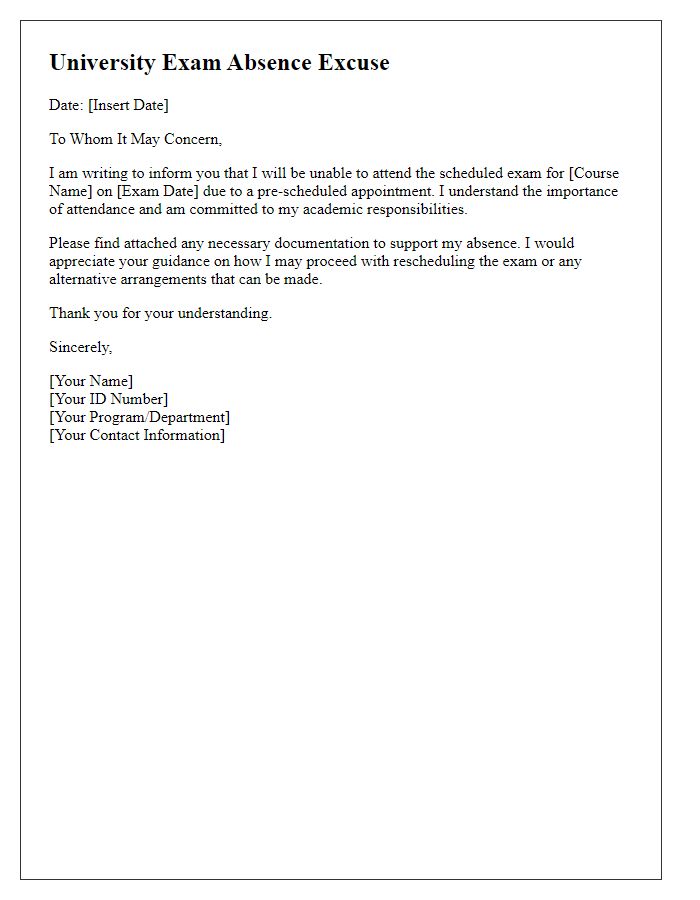
Letter template of university exam absence excuse due to mental health issues.
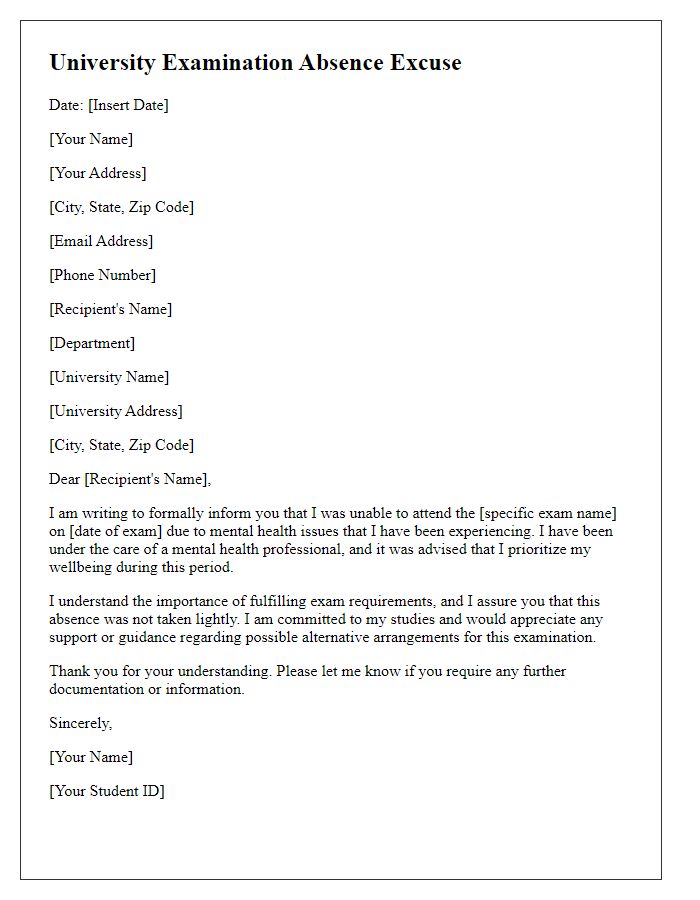
Letter template of university exam absence excuse for travel complications.
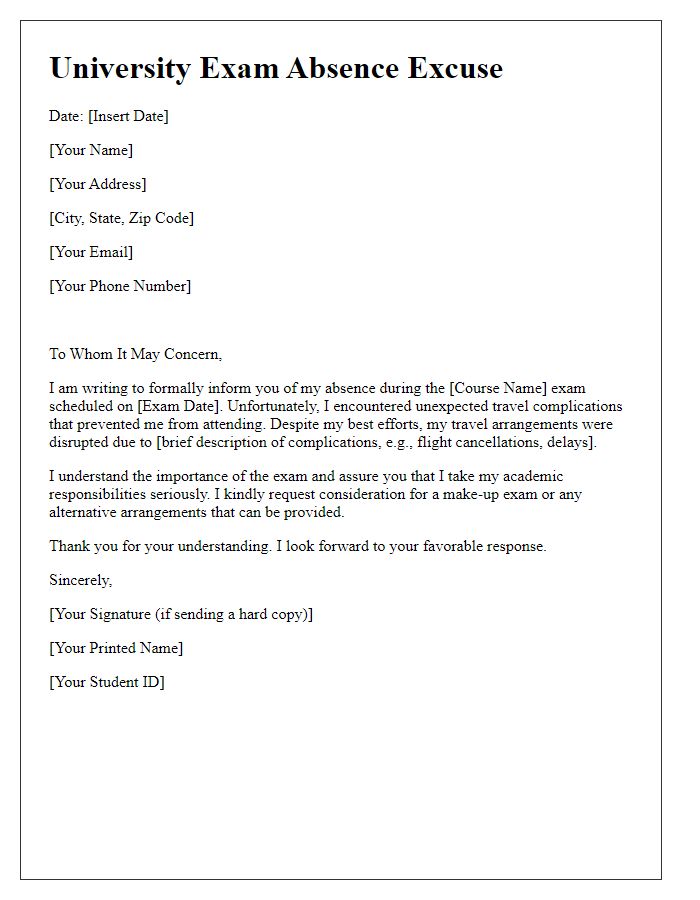
Letter template of university exam absence excuse related to a legal obligation.
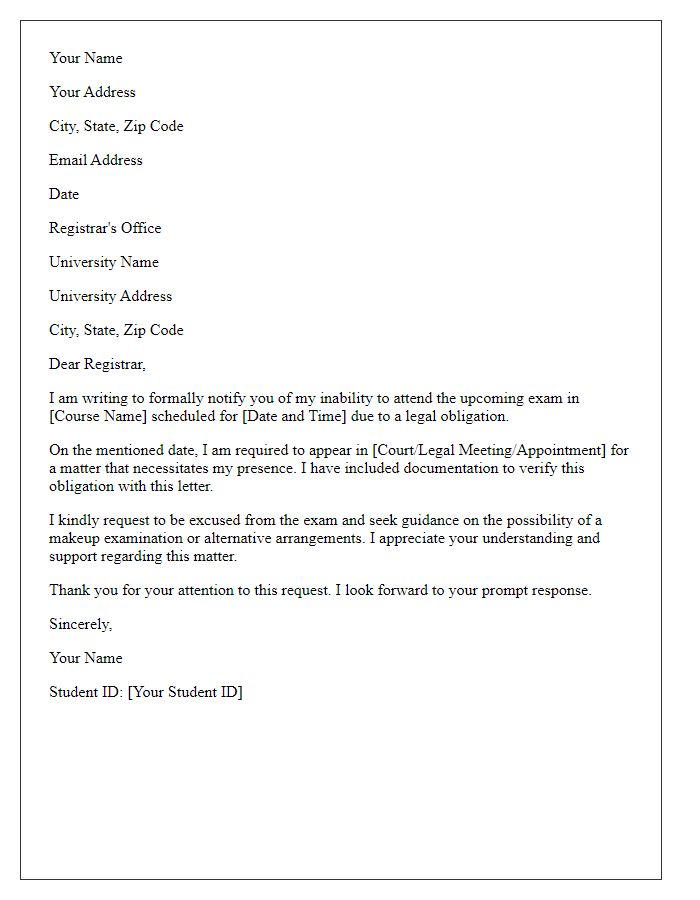
Letter template of university exam absence excuse for a work commitment.
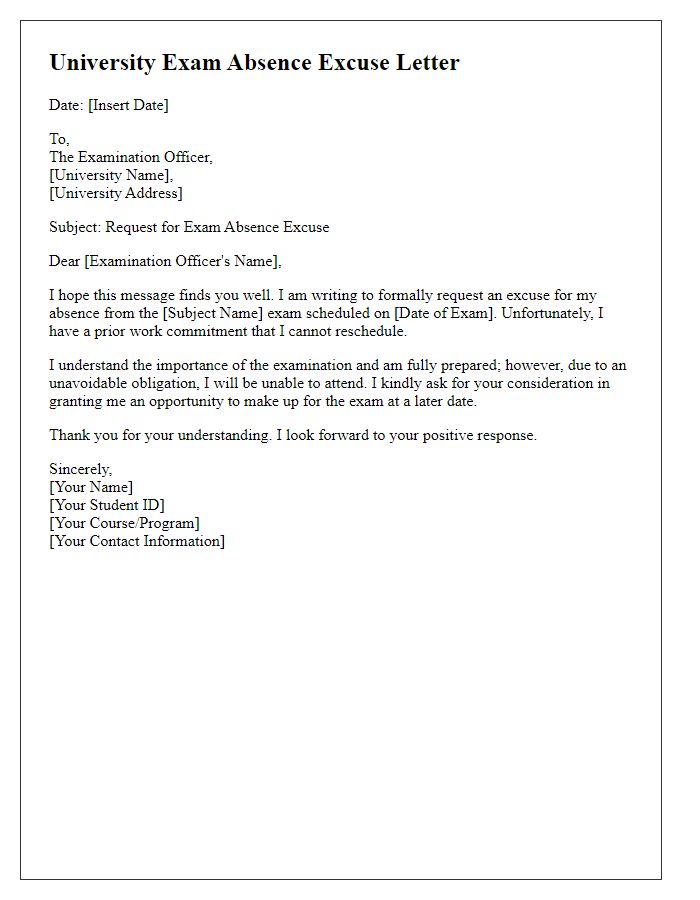
Letter template of university exam absence excuse due to a death in the family.
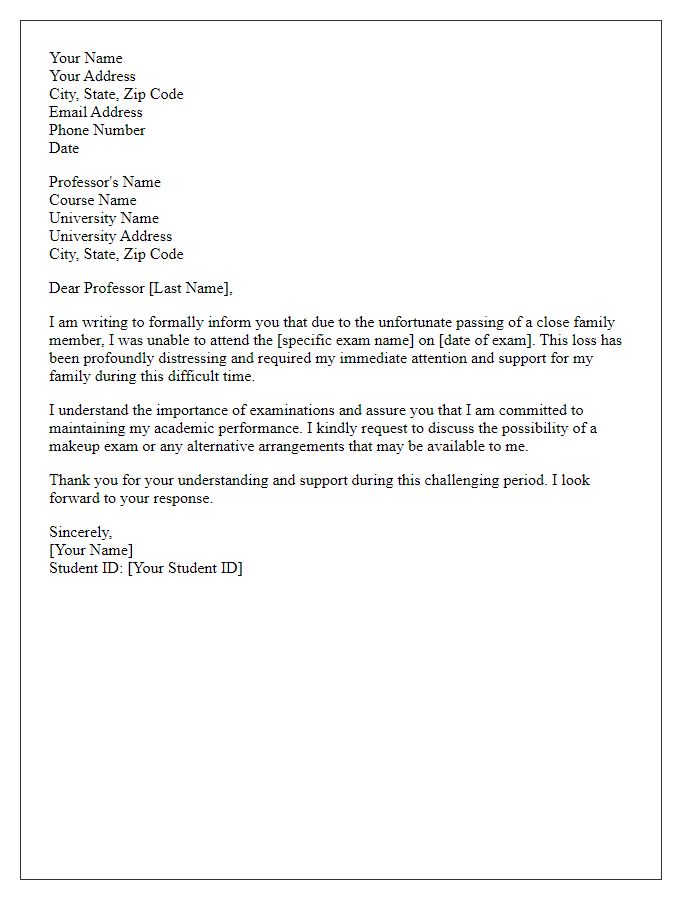

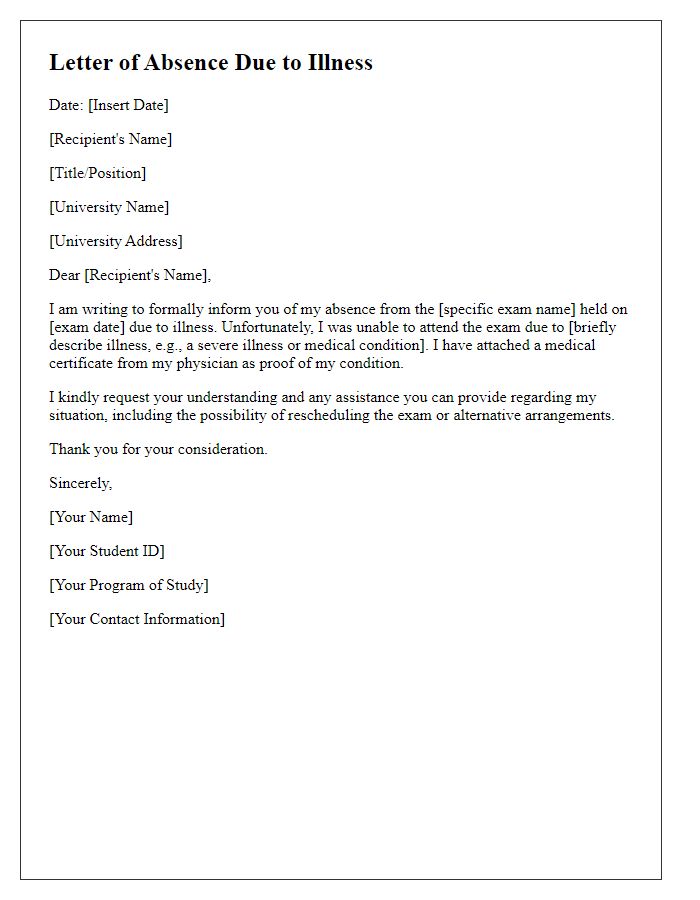
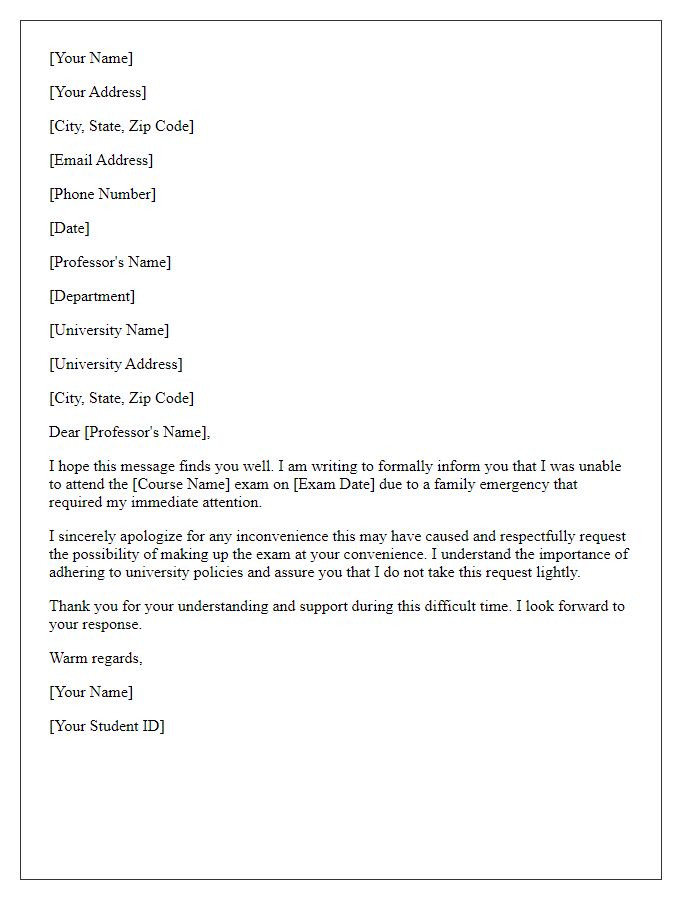
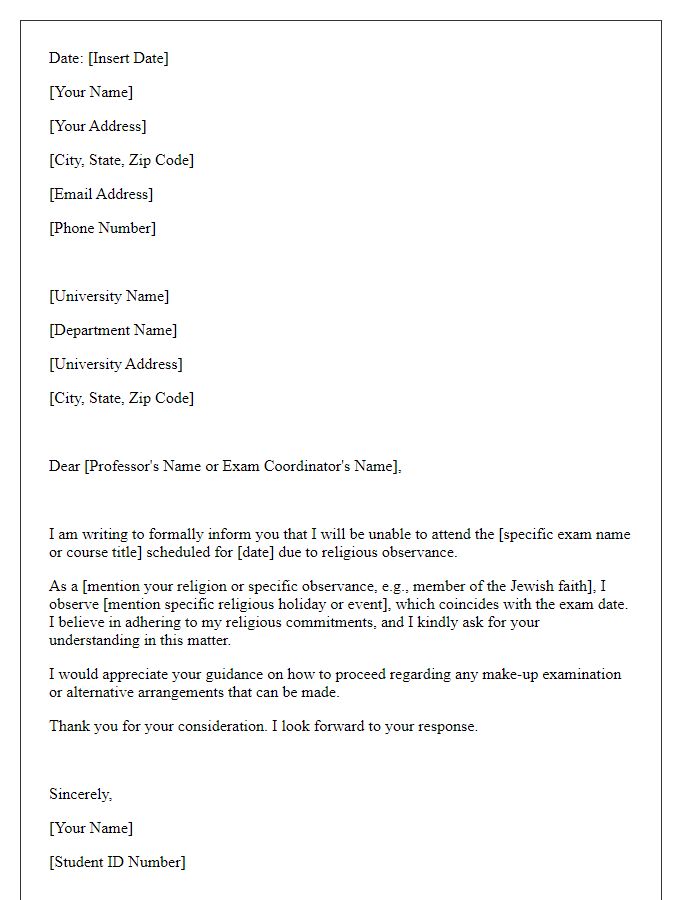
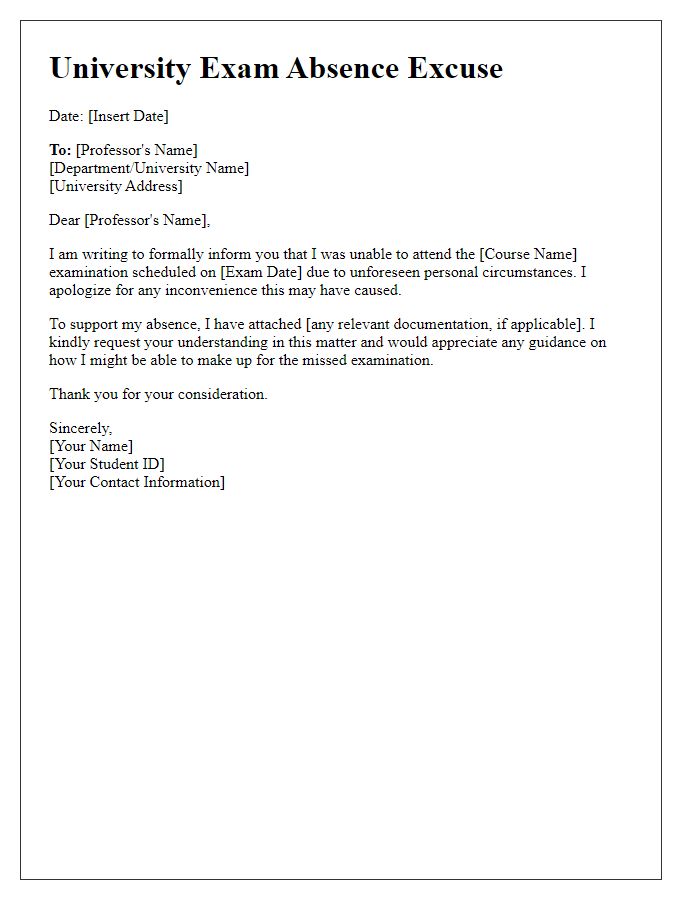


Comments